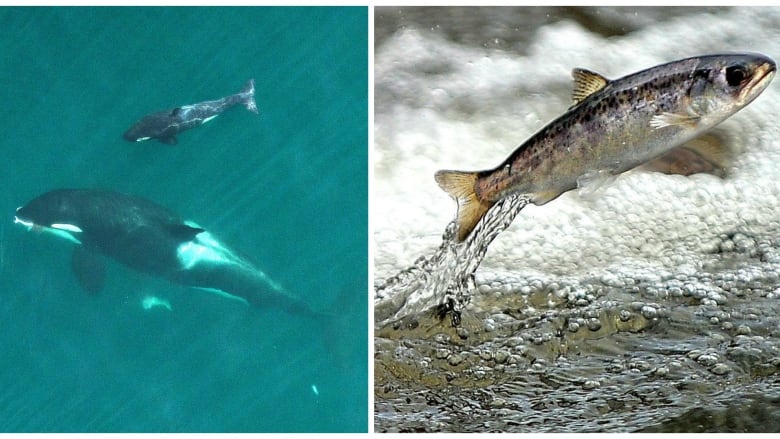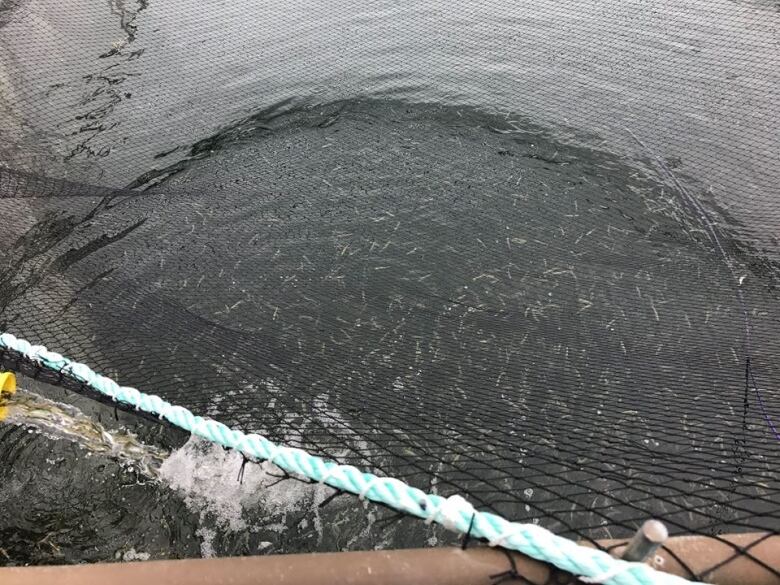Over 220,000 young Chinook to be released to help B.C.'s endangered orcas
Anglers' coalition hopes the project will increase food certainty for the 78 remaining resident orcas

It's a project started by a group of B.C fishermen that could producebig results in just a few years.
By the end of May, the first batch of around 220,000 young Chinook salmon will be released into the ocean to help feed B.C.'s endangered orcas.
The project, long in the works, is privately funded and was approved by the federal government last year. It involved catching wild fish and facilitating their reproduction in a hatchery and now the smolts are set to be releasedoff the docks of the Sooke Harbour Resort and Marina.
- Anglers' plan to feed endangered B.C. orcas given green light, but met with some criticism
- Whale poop study shows connections between salmon and killer whales
"It's a win-win for everyone," said Christopher Bos, president of the South Vancouver Island Angler's Coalition.
"The community coming together to do something that the government can't afford to help an endangered species find food certainty and to benefit a community that relies on the business of recreational fishing.And for First Nations to be able to feed themselves with fish that is part of their heritage."

Expected to be eaten in three years
There are only about 78 orcas remaining in theJ, K, and L-pods that travel up and down the West Coast and despite a number of births, the population has been struggling in recent years.
According to a study released earlier in 2016, more than 98 per cent of the orcas' summer diet is Chinook salmon, a species that is also struggling along many areas ofthe West Coast.
"They will come backin three yearsas large adult salmon and be present in the Juan de Fuca strait at a time when the killer whales are looking for preferred prey species ... and in the key pre-winter feeding period when they need to put on weight going into their food uncertainty during the winter months," saidBos.
- Orca 'Granny' missing and presumed dead
- Whale sanctuary group eyeing B.C. coast as potential location
- B.C. orca baby boom offers hope, but population still fragile
Only about 5,000 of the 220,000 Chinook released this year are expected to survive to maturity. The effectiveness of the project, which will cost $85,000 this first year,will be will be monitored through the tagging of fish and analyzing of orca scat.
"We're not trying to get government funding because we don't think it's right that it's on the government's shoulders to do this," said Bos.
"We think this is something that's got so much benefit to the community. To see the killer whales coming back, this is a really good cause for us to keep working with the community to get that to happen."
With files from Natasha Frakes












_(720p).jpg)


 OFFICIAL HD MUSIC VIDEO.jpg)
.jpg)



























































































